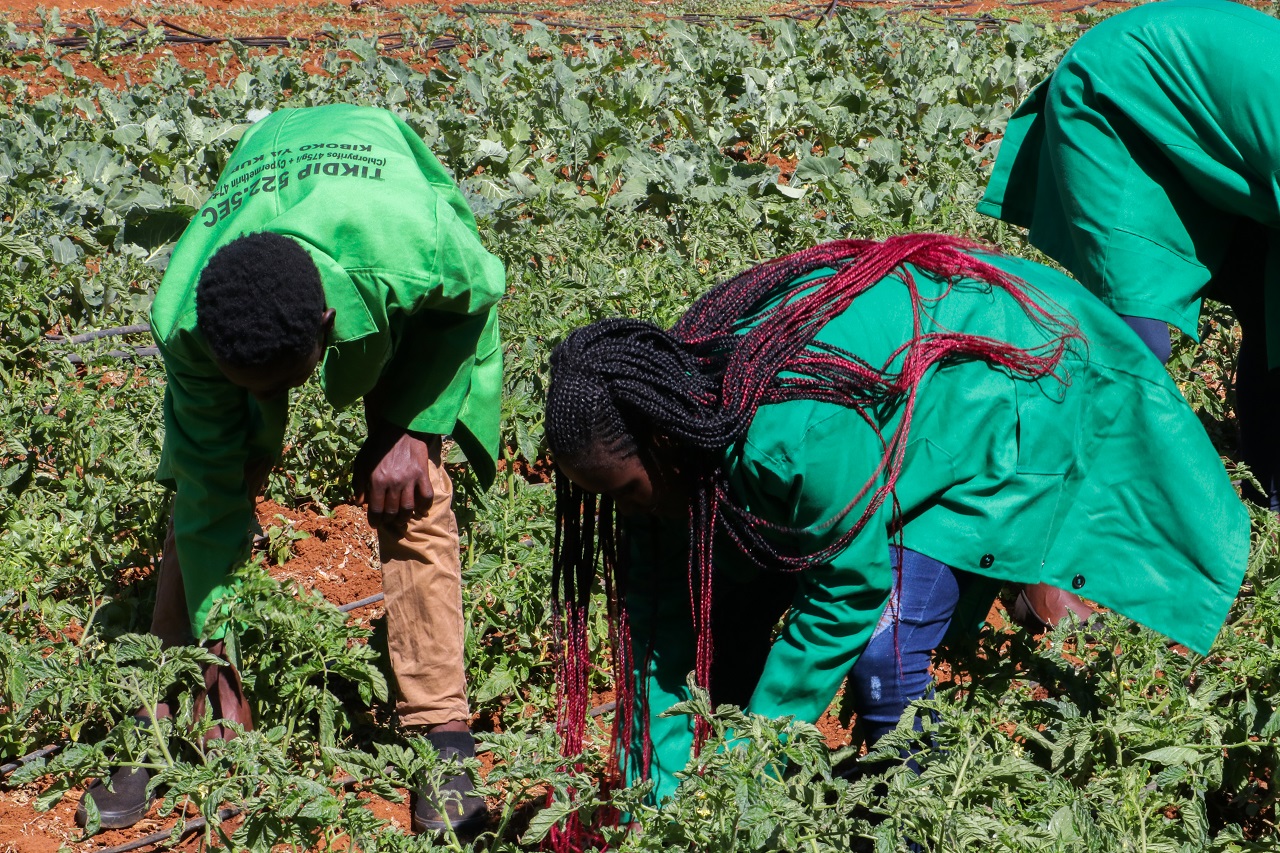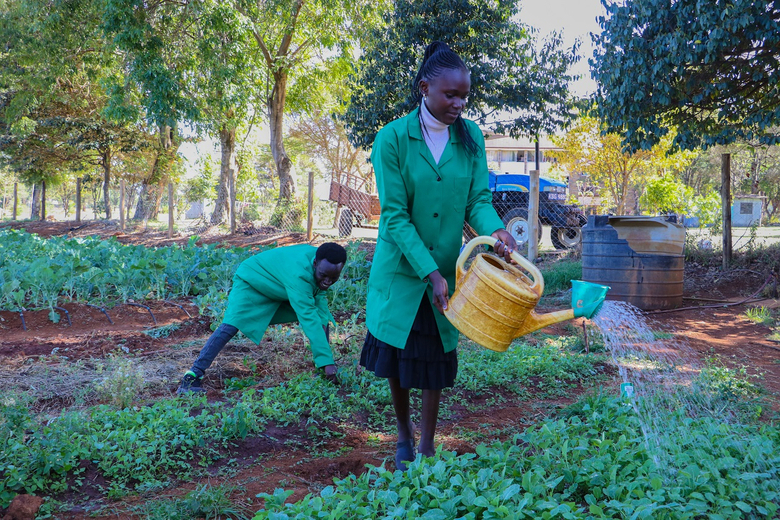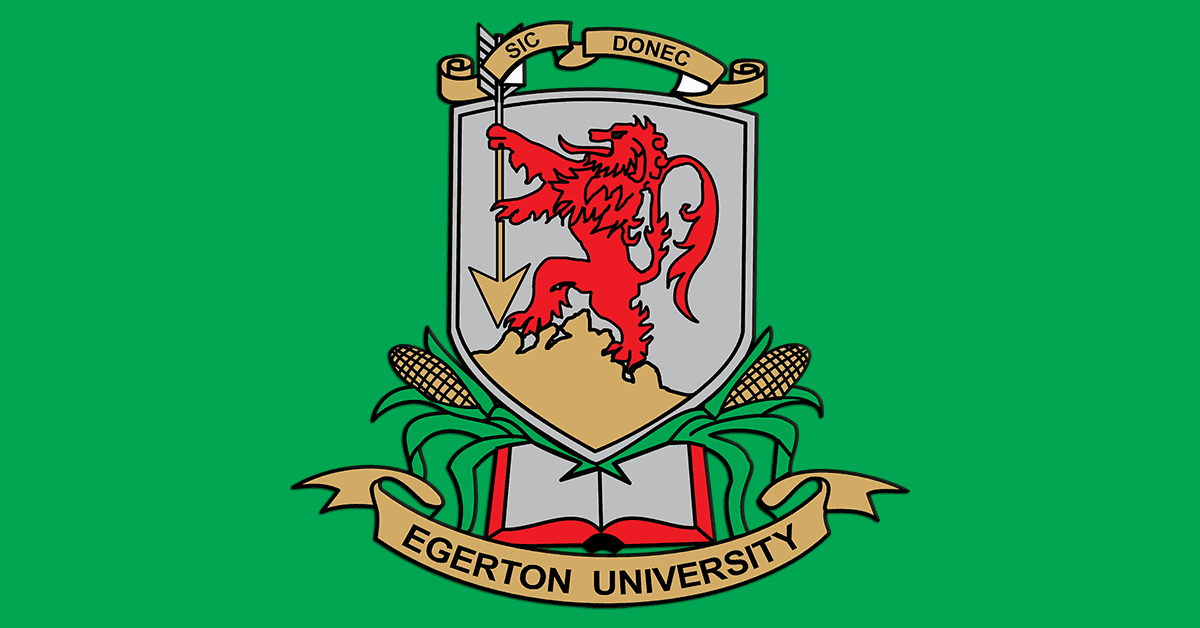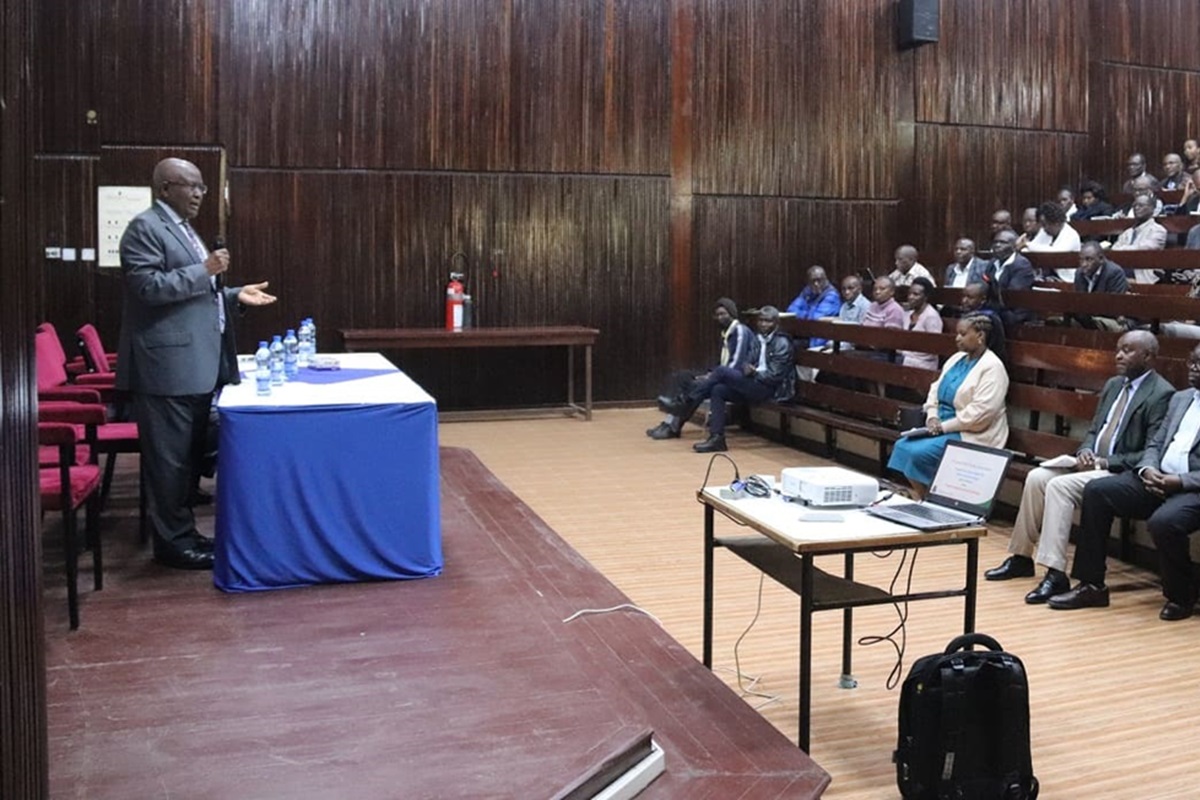Egerton University Builds the Capacity of the Kisii National Polytechnic in the Agriculture Value Chain Through AGSKILLS
Egerton University (EGU) is in partnership with the Kisii National Polytechnic (KNP) to improve the institution’s competitiveness in the Agricultural Value Chain (AVC) under the “Building Capacity to Deliver Skills Programmes for the Agricultural Value Chain (AGSKILLS)” programme.

The EUR 3.5 million project is funded under the Skills Initiative for Africa (SIFA) programme implemented by the African Union Development Agency (AUDA-NEPAD). The Skills Initiative for Africa (SIFA) programme is funded by the German Development Bank (KfW). AGSKILLs will build the human and infrastructural capacity of KNP to deliver skills programmes for enhanced competitiveness in the AVC by delivering quality, market relevant and gender-sensitive programmes.
Agriculture is central to emerging market economies. In Africa, it accounts for as much as 65 per cent of employment and 32 per cent of output. The broader agribusiness industry—business activities performed “from farm to fork”—is critical to growth and development.
Despite multiple efforts to enhance competitiveness within the AVC, initiatives still do not generate sustainable economic impact. Skills gaps among the workforce limit the takeoff of such initiatives since TVETs are not sufficiently capacitated to foster the transformation of agriculture and trade to global competitiveness. The institutions face inadequate trained and skilled labour, weak or non-existent linkages with the private sector, little to no infrastructure to support research and training, and weak gender mainstreaming interventions.
This state of affairs necessitated collaboration between EGU’s CoELIB Project and KNP to sustainably drive a shift in research and development spending to focus on preparing the future supply of demand to transfer knowledge into practice.
The partnership will see KNP:
- Improve the quality of educational programmes in the agriculture sector to focus on skill development, business development and private sector involvement;
- Establish a self-sustaining Quadruple-helix Innovation Platform (QHIP) bringing together governments, the private sector, other higher education institutions and communities to support skills development, business incubation and outreach; and
- Improve its institutional capacity to implement gender transformative competency-based agricultural programmes, emphasising innovative approaches, teaching methodologies and technologies.
“Egerton University has a long-running scorecard in building the capacity of TVETs in Kenya. This technical know-how and experience place the institution at a vantage point to provide the necessary infrastructural support to KNP. AGSKILLS will be implemented through the CoELIB Project. The project will cascade years of experience and knowledge in developing different agricultural value chains across Africa by supporting incubation, business and market development and providing information, technical assistance and consulting.” Prof. Dr. A. K. Kahi, Director – CoELIB Project.
Egerton University will work with KNP to develop information resources and offer technical assistance and consulting in design, innovation, and technology. The project will also capacitate KNP in entrepreneurial support by targeting innovators, helping them grow their enterprises, linking them to markets and increasing their economic prospects. Egerton University will support business incubation at KNP. Resultantly, KNP will receive infrastructural support to promote this capacity development. KNP will also receive physical infrastructural support to facilitate research, training and knowledge transfer.
 AGSKILLS appreciates the gap between skills acquisition within TVETs and market demand. The project will also support KNP in offering workforce development solutions. This capacitation will see the quality of KNP’s agricultural programs improve. As a result, AGSKILLS will foster employment-and business- oriented skills development for youth in the AVC, translating to sustainable employment pathways. 3,000 and 2,000 youths will be trained and placed in jobs, respectively.
AGSKILLS appreciates the gap between skills acquisition within TVETs and market demand. The project will also support KNP in offering workforce development solutions. This capacitation will see the quality of KNP’s agricultural programs improve. As a result, AGSKILLS will foster employment-and business- oriented skills development for youth in the AVC, translating to sustainable employment pathways. 3,000 and 2,000 youths will be trained and placed in jobs, respectively.
“The Kisii National Polytechnic is proud since our capacity is being built by a premier agricultural university in Kenya. Our mission is to develop highly qualified, globally competitive and innovative human resources by providing quality training, applied research & extension and entrepreneurship skills responsive to market demands. This collaboration with Egerton University through the CoELIB project will make us the preferred technical and vocational skills development and training institution. It will also help us sustainably contribute to youth employment through demand-driven training and capacity development.” Mr. Daniel Nyariki, Principal - KNP
“The proposal was developed following an initial meeting at CoELIB. This goes to show the importance of partnership in providing solutions to human development challenges. Collaboration between universities and TVETs provides opportunities for mutual capacity strengthening while facilitating flexible transition pathways, improving the mobility of TVET graduates and helping in attaining sustainable development goals.” - Evans Moraa, Project Coordinator – KNP.







